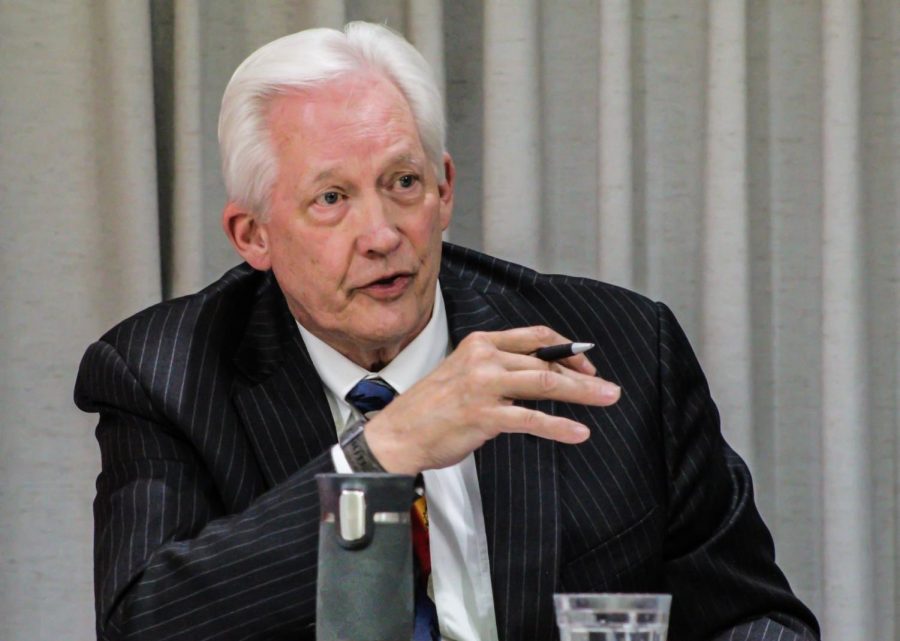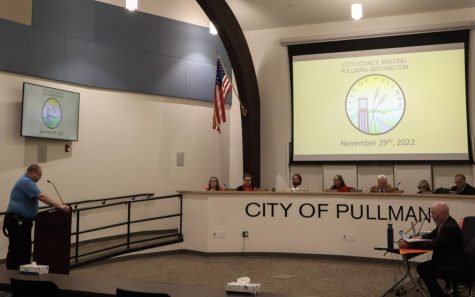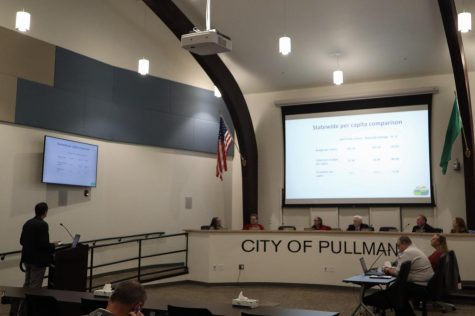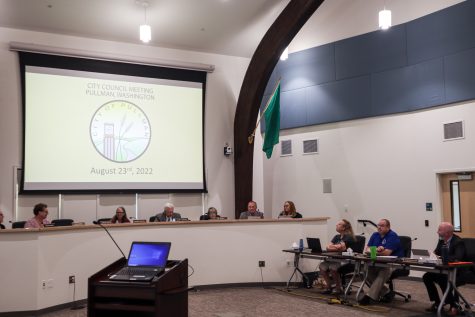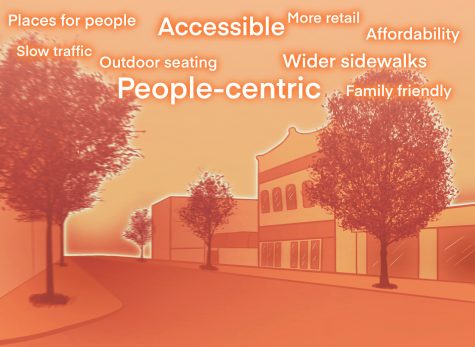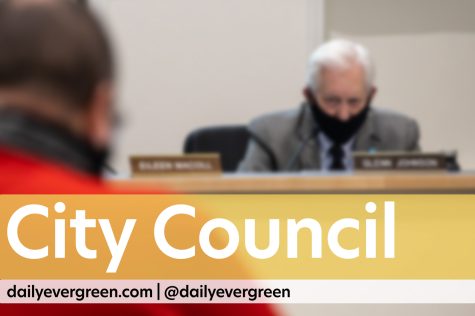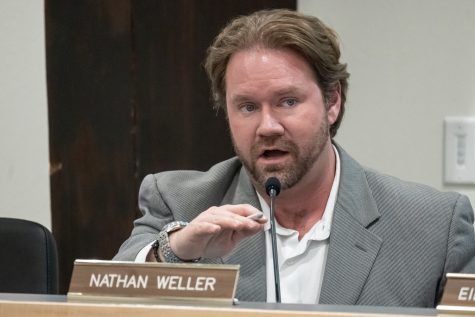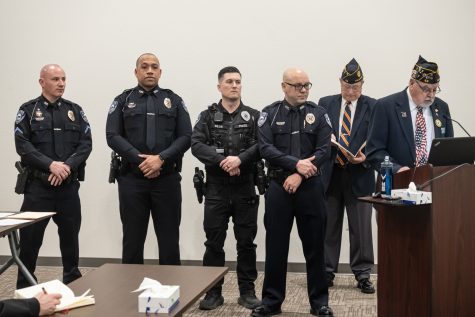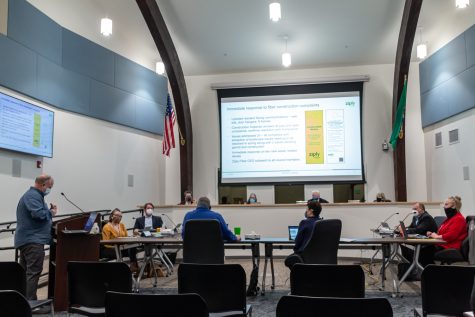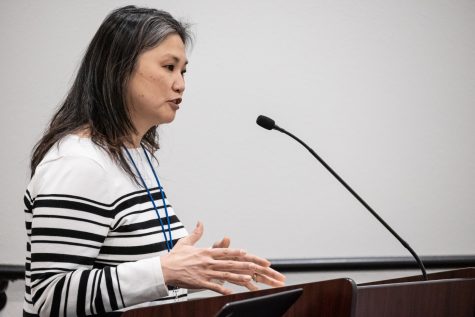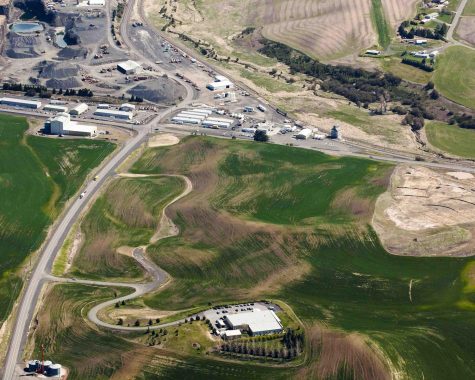City Council discusses Pullman reopening
Pullman Regional Hospital CEO said Whitman County is a low impact community, ready to move to Phase 2.
CAROLYNN CLAREY | DAILY EVERGREEN FILE
Mayor Glenn Johnson said the Whitman County Health Department, Whitman County commissioners, and mayors of each city within Whitman County are backing the application for transitioning Whitman County to Phase 2.
May 13, 2020
Councilmembers addressed the effects of COVID-19 on the city and the possibility of Pullman moving to Phase 2 of reopening during the city council meeting Tuesday.
Mayor Glenn Johnson said the Whitman County Health Department, Whitman County commissioners, and mayors of each city within Whitman County are backing the application for transitioning the county to Phase 2.
“We’ve been asking to move to Phase 2 — I even had that conversation with the governor,” Johnson said. “Whitman County commissioners are the ones that have to take the action.”
Scott Adams, CEO of Pullman Regional Hospital (PRH), gave an update to the council on COVID-19 activity within the hospital.
He said PRH tested around 800 patients for COVID-19 in which 2 percent tested positive and 98 percent tested negative. PRH has been able to increase their turnaround time for tests from five days to 24-48 hours, he said, due to a partnership with Incyte Diagnostics in Spokane.
Adams said he is certain that Whitman County is ready to move on to Phase 2.
“We’re a low-impact community, kind of a cold spot in the midst of hot spots in other parts of the state,” he said. “It makes a lot of sense for us to move into Phase 2.”
Councilmember Nathan Weller asked Adams about individuals who were turned down from testing when the pandemic started even if they were showing signs.
“My concerns are the COVID-19 cases that might possibly be out there, but weren’t initially tested,” Weller said.
Tony Bean, executive director of Pullman-Moscow Regional Airport, said only 4.8 percent of traffic came through Pullman-Moscow this year, which is ahead of the 4.7 percent national average. The airport has been running one flight per day with an average of 30 people per flight, which increased from 11 people per flight.
Bean said Alaska Airlines required passengers to wear masks on flights, but they are not required to do so within the airport.
“It’s gonna take a long time for people to feel comfortable on a full airplane,” Bean said.
Kurt Dahmen, recreation superintendent of Parks, Facilities and Recreation, said the Recreation Center is looking at employees they have available to work when centers reopen. Many workers at the center were WSU students, but most left after spring break.
Dahmen said Pullman has to get to Phase 3 in order to reopen the centers. He said they are hoping to reopen on June 22.
“We are hopeful that we will be able to provide some sort of summer programming as we go forward,” Dahmen said.
Mike Urban, director of finance and administrative services for the City of Pullman, gave an update on Pullman’s financial situation for the first quarter of the year, including the ongoing effects of COVID-19.
Building permit revenues decreased due to the state ordering a halt on all new construction orders, he said. Sales and property tax revenues also decreased compared to last year’s first quarter.
Urban said most of Pullman’s expenses increased this year compared to the previous year except for utilities due to an increase in staffing and construction projects currently in progress.
The Pullman School District and WSU asked for a refund on transit fees for some of March and the rest of the school year due to students not using the services. Urban said the refund will be budgeted during the second quarter of the fiscal year.
Urban said he is predicting a strong fourth quarter for 2020, but the city must maintain vigilance with respect to monetary and health activities in case there is a COVID-19 relapse later in the year.

